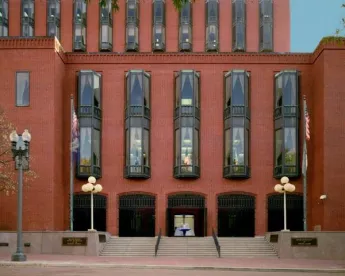In CyWee Group Ltd. v. Google LLC, Nos. 2020-1565, 2020-1567 (Mar. 16, 2021), CyWee challenged the Board’s conclusion that Google identified all real parties-in-interest under the obligations of 35 U.S.C. § 312(a)(2).
The holding in an earlier Federal Circuit case was determinative—ESIP Series 2, LLC v. Puzhen Life USA, LLC, 958 F.3d 1378, 1386 (Fed. Cir. 2020). In ESIP, the Federal Circuit concluded that “the Board’s § 312(a)(2) real-party-in-interest determination is final and non-appealable” under 35 U.S.C. § 314(d) because it “raises an ordinary dispute about the application of an institution-related statute.” Id. (internal quotations omitted); see also Thryv, Inc. v. Click-to-Call Techs., LP, 140 S. Ct. 1367, 1373–74 (2020); Cuozzo Speed Techs., LLC v. Lee, 136 S. Ct. 2131, 2139 (2016). This same principle applied in CyWee.
CyWee attempted to distinguish ESIP by arguing that there were two issues beyond the Board’s decision on institution that were impacted by the Board’s finding that Google’s real party-in-interest designation was appropriate. First, the Board denied CyWee’s post-institution motion to dismiss for failure to properly name all real parties-in-interest in the petition. Second, the Board also denied CyWee’s motion seeking additional discovery into other unnamed entities it believed were real parties-in-interest to the petition. CyWee presented both the issues of dismissal and discovery as distinct from institution, and thus appealable. The Federal Circuit disagreed.
On the first issue, the Federal Circuit found that CyWee’s motion to dismiss “amounted to nothing more than a request for the Board to reconsider its institution decision,” which is “final and non-appealable” under 35 U.S.C. § 314(a).
On the second issue, the Federal Circuit found that, like the motion to dismiss, CyWee’s motion for additional discovery was inextricably bound to the decision to institute because the only discovery CyWee sought “relates solely to whether Google met its obligations under § 312(a)(2).” And CyWee provided no explanation for why the discovery denial should be reviewable if the underlying § 312(a)(2) issue is not reviewable. The Federal Circuit therefore concluded that the “Board’s discovery ruling is a subcomponent of its broader challenge to the Board’s § 312(a)(2) determination and is therefore similarly unreviewable.”




 />i
/>i

